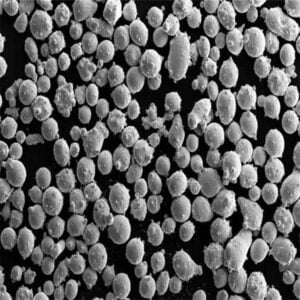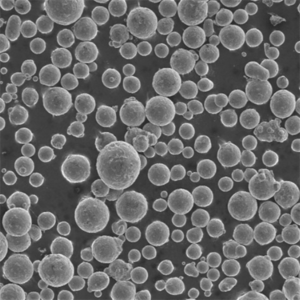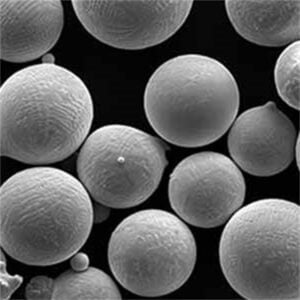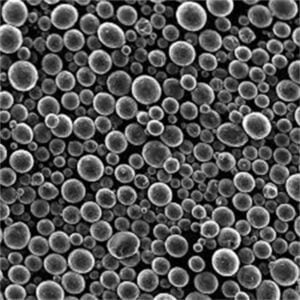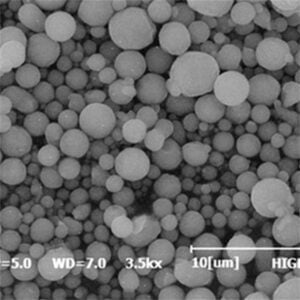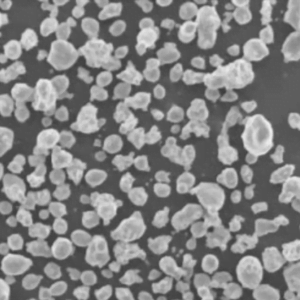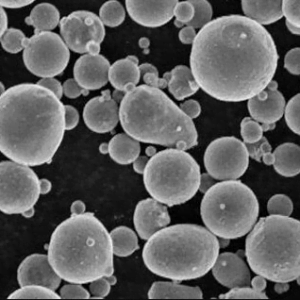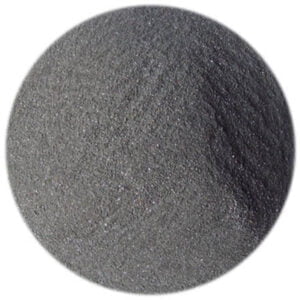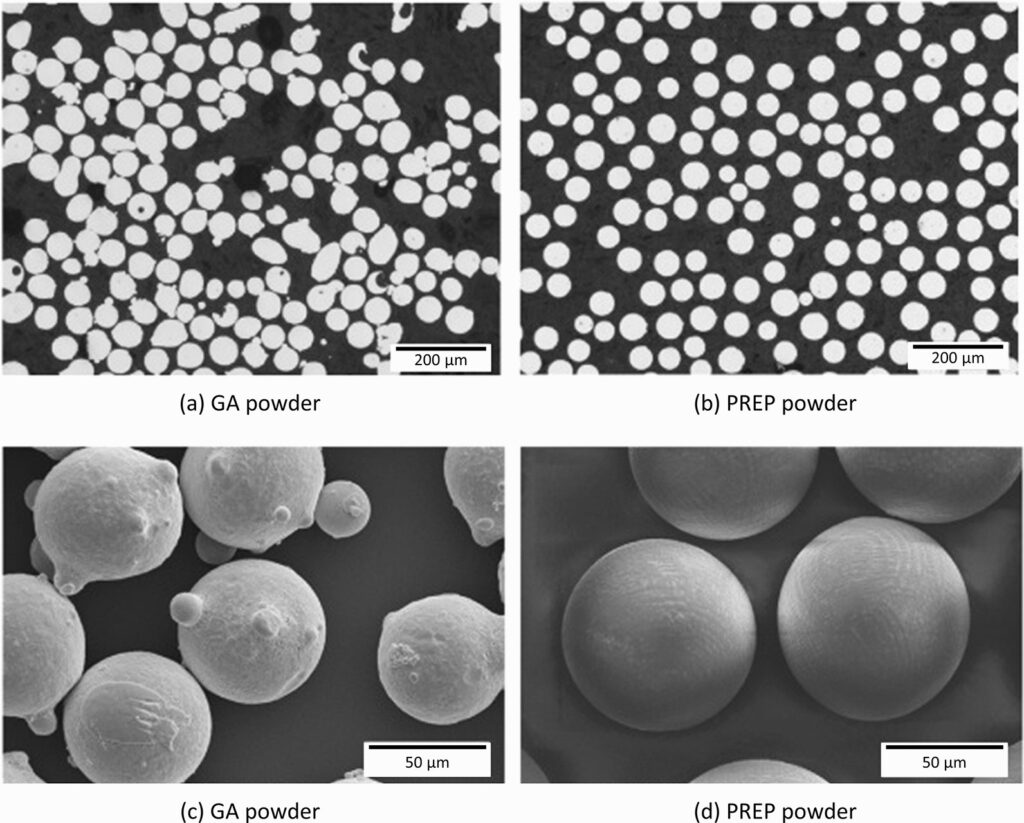
18Ni300 Powder: Superior Strength and Durability for Demanding Applications
Low MOQ
Provide low minimum order quantity to meet different needs.
OEM & ODM
Provide customized products and design services to meet unique customer needs.
Adequate Stock
Ensure fast order processing and provide reliable and efficient service.
Customer Satisfaction
Provide high quality products with customer satisfaction at the core.
share this article
Table of Contents
When it comes to high-performance materials used in industries like aerospace, automotive, and tooling, few alloys can match the versatility and strength of 18Ni300 Powder. This high-strength, low-alloy steel, often referred to as maraging steel, is engineered to provide exceptional mechanical properties such as high tensile strength, toughness, and excellent dimensional stability after heat treatment.
But what makes 18Ni300 Powder stand out from other alloy powders? How does it compare to more traditional materials, and where can it be effectively utilized? In this article, we’ll dive deep into the composition, properties, applications, and advantages of 18Ni300 Powder. Whether you’re an engineer, material scientist, or a decision-maker in additive manufacturing, this guide will equip you with the knowledge to make informed decisions about implementing this remarkable material in your projects.
Overview of 18Ni300 Powder
18Ni300 Powder is a maraging steel powder that offers an optimal balance of strength, hardness, and ductility. It belongs to the class of martensitic age-hardenable steels and exhibits exceptional mechanical properties after the aging process. Its high nickel content (18%) and low carbon content are responsible for its toughness and machinability, while added elements like molybdenum, cobalt, and titanium enhance its overall performance.
This alloy is primarily used in applications that demand high wear resistance, dimensional accuracy, and resistance to deformation. It’s especially popular in additive manufacturing (3D printing), where its fine powder form allows for precise control over part geometry and properties.
Key Features :
- High tensile and yield strength after heat treatment.
- Excellent toughness and ductility at room and sub-zero temperatures.
- Good machinability in the annealed condition.
- Resistance to creep and stress corrosion cracking.
- Fine grain structure for enhanced fatigue resistance.
- Low thermal expansion and dimensional stability during heat treatment.
Composition and Properties of 18Ni300 Powder
Understanding the composition and mechanical properties of 18Ni300 Powder is key to appreciating its versatility. The alloy’s unique combination of elements enables it to perform well under high-stress conditions and in critical applications where failure is not an option.
Composition
| Element | Percentage (%) |
|---|---|
| Nickel (Ni) | 18 – 19 |
| Cobalt (Co) | 7 – 9 |
| Molybdenum (Mo) | 4.5 – 5 |
| Titanium (Ti) | 0.6 – 0.8 |
| Aluminum (Al) | 0.1 – 0.15 |
| Carbon (C) | ≤ 0.03 |
| Iron (Fe) | Balance |
The high nickel content contributes to the alloy’s strength and toughness. Cobalt and molybdenum further improve hardness and creep resistance, while titanium aids in the precipitation-hardening process during aging, resulting in increased strength.
Mechanical and Physical Properties
| Property | Value |
|---|---|
| Tensile Strength | 1800 – 2000 MPa |
| Yield Strength | 1700 – 1900 MPa |
| Elongation | 6 – 10% |
| Hardness (HRC) | 50 – 53 |
| Density | 8.1 g/cm³ |
| Melting Point | 1413°C |
| Thermal Conductivity | 15 W/mK |
| Electrical Resistivity | 0.8 µΩm |
Key Takeaways:
- 18Ni300 Powder offers exceptional strength and hardness after heat treatment, making it ideal for applications that require wear resistance and high mechanical performance.
- Its toughness and ductility make it suitable for cold work and high-stress environments.
- The alloy maintains dimensional stability even after heat treatment, ensuring minimal deformation or warping.
Applications of 18Ni300 Powder: Where and How It’s Used
Thanks to its superior mechanical properties and adaptability in additive manufacturing, 18Ni300 Powder has a wide range of applications. It’s commonly used across industries that require high-strength materials and complex geometries, including aerospace, automotive, tooling, and medical devices.
Common Applications
| Industry | Applications |
|---|---|
| Aerospace | Landing gear components, turbine blades, structural parts |
| Automotive | High-performance gears, crankshafts, transmission components |
| Tooling | Molds, dies, punches, extrusion tools |
| Medical | Surgical instruments, orthopedic implants |
| Additive Manufacturing | Complex 3D-printed parts for custom designs |
| Defense | Missile components, armor plating |
Why 18Ni300 Powder Excels in These Applications
In aerospace, for instance, the need for materials that can perform under extreme temperatures and high stresses is critical. 18Ni300 Powder stands out due to its high tensile strength, dimensional stability, and resistance to fatigue—all of which are necessary for components like landing gear and turbine blades.
In tooling, 18Ni300 Powder is the material of choice for creating molds, dies, and punches because it can withstand high wear and repeated use without losing its dimensional accuracy or strength.
Specifications, Sizes, and Standards for 18Ni300 Powder
When selecting 18Ni300 Powder for a specific application, it’s essential to understand the available specifications, sizes, and grades. Different industries and manufacturing processes may require different particle sizes and certifications, so knowing these details can help ensure the right material fit for the job.
Specifications and Sizes
| Specification | Details |
|---|---|
| Particle Size | 10 to 45 µm (microns) |
| Powder Flowability | 18 – 22 sec/50g (ASTM B213) |
| Apparent Density | 4.1 – 5.0 g/cm³ |
| Tap Density | 4.6 – 5.4 g/cm³ |
| Standards | ASTM A646, AMS 6521, ISO 5755 |
| Packaging Sizes | 1 kg, 5 kg, 25 kg |
| Form | Spherical or irregular powder |
Grades of 18Ni300 Powder Available
| Grade | Characteristics |
|---|---|
| 18Ni300 Standard | General-purpose use with high strength and ductility |
| 18Ni300 High-Strength | Enhanced mechanical properties for heavy-duty use |
| 18Ni300 Additive | Optimized for additive manufacturing processes |
| 18Ni300 Tooling | Ideal for molds, dies, and tooling applications |
Choosing the Right Grade
For example, if you’re working on aerospace components, you’ll want to choose a high-strength grade due to the extreme conditions these parts will face. On the other hand, for additive manufacturing, the 18Ni300 Additive grade is optimized for 3D printing processes, offering good flowability and uniform particle size distribution.
Suppliers and Pricing of 18Ni300 Powder
As with any specialized material, the price of 18Ni300 Powder can vary depending on supplier, grade, and quantity. Below is a breakdown of some common suppliers and the typical price ranges you can expect.
Suppliers and Pricing Details
| Supplier | Location | Price Range (per kg) | Delivery Time |
|---|---|---|---|
| Advanced Powders Ltd. | USA | $100 – $150 | 1-2 weeks |
| EuroAlloys Co. | Europe | $95 – $135 | 2-3 weeks |
| AsiaTech Materials | China | $90 – $130 | 3-4 weeks |
| Global Powder Supply | UK | $110 – $160 | 1-2 weeks |
| Precision Metal Powders | India | $85 – $125 | 3-4 weeks |
Factors That Influence Pricing
- Quantity: Larger orders typically result in a lower price per kilogram.
- Grade: High-strength and additive manufacturing grades are often more expensive due to the additional processing required.
- Location of Supplier: Local suppliers may offer faster delivery times, while international suppliers might provide lower base prices but could have higher shipping costs.
Advantages and Limitations of 18Ni300 Powder
While 18Ni300 Powder offers numerous advantages, it’s important to consider its limitations as well. Depending on your project’s requirements, you may find that 18Ni300 is the perfect solution, or you might discover that another material is a better fit.
Advantages and Limitations
| Advantages | Limitations |
|---|---|
| Exceptional tensile strength after aging | Higher cost compared to standard steel alloys |
| Excellent dimensional stability | Requires precise heat treatment to reach full strength |
| Good machinability in annealed state | Not suitable for applications requiring high corrosion resistance |
| Ideal for additive manufacturing | Limited availability of certain grades in some regions |
| High wear resistance and toughness | Can be more complex to process compared to other alloys |
Is 18Ni300 Powder Right for Your Application?
If you’re working on projects that require high strength, toughness, and dimensional stability, 18Ni300 Powder is a fantastic choice. However, if cost or corrosion resistance is a primary concern, you may want to explore other alloy options, such as stainless steel powders or nickel-based superalloys.
Frequently Asked Questions (FAQ)
To address some common questions about 18Ni300 Powder, we’ve compiled an FAQ section that covers the most frequently asked topics. This should help clarify any remaining questions you may have about this versatile material.
| Question | Answer |
|---|---|
| What is 18Ni300 Powder used for? | 18Ni300 Powder is used in industries like aerospace, automotive, tooling, and medical for applications requiring high strength and wear resistance. |
| How much does 18Ni300 Powder cost? | Prices for 18Ni300 Powder typically range from $85 to $160 per kilogram, depending on supplier, grade, and quantity. |
| Is 18Ni300 Powder suitable for 3D printing? | Yes, 18Ni300 Powder is highly suitable for additive manufacturing, providing excellent flowability and dimensional stability. |
| How does 18Ni300 Powder compare to other powders? | Compared to standard powders like 316L stainless steel, 18Ni300 offers superior strength and wear resistance, though it may cost more. |
| Can 18Ni300 Powder be used in medical applications? | Yes, 18Ni300 is used for surgical instruments and orthopedic implants due to its strength and toughness. |
| What is the heat treatment process for 18Ni300 Powder? | 18Ni300 undergoes solution annealing, followed by aging to precipitate hardening phases, which significantly boost its strength. |
| What is the melting point of 18Ni300 Powder? | The melting point of 18Ni300 Powder is approximately 1413°C, making it suitable for high-temperature environments. |
Conclusion
18Ni300 Powder is a top-tier material that excels in applications requiring high strength, toughness, and dimensional stability. Its versatility across industries like aerospace, automotive, tooling, and medical makes it a go-to choice for those who need a material that can withstand extreme conditions while maintaining precision.
Whether you’re looking to implement 3D-printed parts, high-performance tooling, or aerospace components, 18Ni300 Powder offers a fantastic combination of properties that can help ensure your project’s success. While it may come at a higher cost compared to more common materials, its long-term durability and enhanced performance make it a worthy investment for critical applications.
So, is 18Ni300 Powder the right material for your next project? If your application demands high strength, fatigue resistance, and dimensional accuracy, there’s a good chance that this alloy will meet your needs—and then some.
Get Latest Price
About Met3DP
Product Category
HOT SALE
CONTACT US
Any questions? Send us message now! We’ll serve your request with a whole team after receiving your message.

Metal Powders for 3D Printing and Additive Manufacturing
COMPANY
PRODUCT
cONTACT INFO
- Qingdao City, Shandong, China
- [email protected]
- [email protected]
- +86 19116340731






